牛津深圳版英语八年级上Unit1 知识点与练习
- 格式:docx
- 大小:62.57 KB
- 文档页数:43
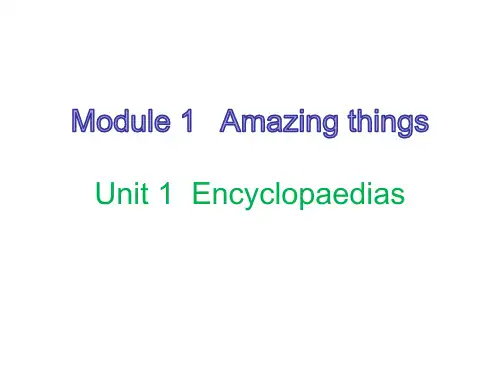
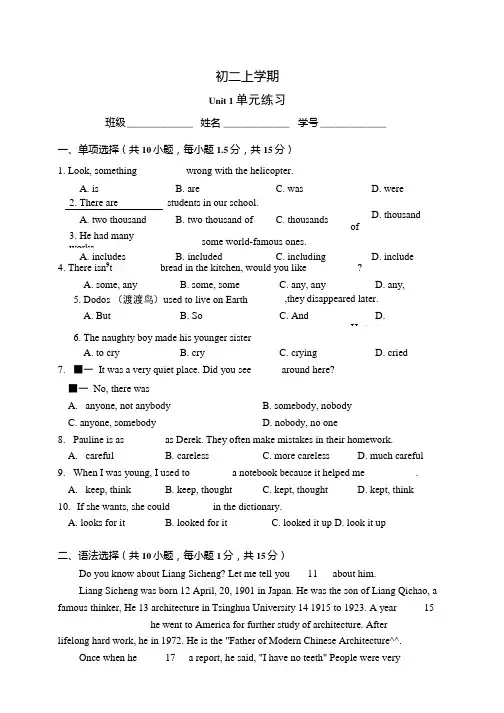
初二上学期Unit 1单元练习班级_____________ 姓名_____________ 学号_____________一、单项选择(共10小题,每小题1.5分,共15分)1. Look, something _________ wrong with the helicopter.A. isB. areC. wasD. were2. There are students in our school.A. two thousandB. two thousand ofC. thousandsD. thousandof3. He had many works, some world-famous ones.A. includesB. includedC. includingD. include4. There isn9t ________ bread in the kitchen, would you like _________ ?A. some, anyB. some, someC. any, anyD. any,some5. Dodos (渡渡鸟)used to live on Earth ,they disappeared later.A. ButB. SoC. AndD.However6. The naughty boy made his younger sisterA. to cryB. cryC. cryingD. cried7.■一It was a very quiet place. Did you see _____ around here?■一No, there wasA.anyone, not anybodyB. somebody, nobodyC. anyone, somebodyD. nobody, no one8.Pauline is as _______ as Derek. They often make mistakes in their homework.A.carefulB. carelessC. more carelessD. much careful9.When I was young, I used to _______ a notebook because it helped me _________ .A.keep, thinkB. keep, thoughtC. kept, thoughtD. kept, think10.If she wants, she could _______ in the dictionary.A. looks for itB. looked for itC. looked it upD. look it up二、语法选择(共10小题,每小题1分,共15分)Do you know about Liang Sicheng? Let me tell you __ 11 __ about him.Liang Sicheng was born 12 April, 20, 1901 in Japan. He was the son of Liang Qichao, a famous thinker, He 13 architecture in Tsinghua University 14 1915 to 1923. A year 15 _________________ he went to America for further study of architecture. Afterlifelong hard work, he in 1972. He is the "Father of Modern Chinese Architecture^^.Once when he ____ 17 _ a report, he said, "I have no teeth" People were very__ 18 __ and they didn't understand. 66I lost my teeth _____ 19 _ Pm old," he continued. The doctor designed a sat of false teeth _________________ 20 _ me. A man of my age usually _ 21 ______________________________________have white teeth any more, so the doctor made 22 false teeth appear to be yellow. Now the false teeth look 23 my real teeth. It is 24 we should 25 when we restore old buildings, to make “the old as the old".11. A. something B. anything C. nothing D.everything12. A. at B. on C. in D./13. A. study B. studies C. studiedD. is studying14. A. from B. at C. between D. for15. A. later B. latest C. late D. lately16. A. was dying B. die C. dead D. died17. A. gives B. gave C. giveD. was giving18. A. surprise B. surprised C. surprising D.surprisingly19. A. because B. but C. so D. or20. A. of B. for C. to D. with21. A. don't B. doesift C. didn't D. won9t22. A. / B. the C. a D. an23. A. out B. down C. up D. like24. A. why B. what C. where D. how25.A. do B.did C. does D. doing三、完形填空(共10小题,每小题1.5分,共15分)Everyone in our school loves sports. Every morning ______ 26 _ we get up, we do morning exercises. After the second class we do the exercises again. We only have 27 classes twice a week, but we do sports at five every afternoon. The most popular sport is basketball. The 28 enjoy playing it and many of the girls like it, too. 29 _ popular sport is football and in every class there _________________________ 30 _ a lot of football fans. Volleyball is often played in the playground when the weather is __ 31 __ . We have school basketball, football and volleyball teams. O UT teams often ___ 32 ___ matches with teams from other schools. When there is a match, _____ 33 __of us go to watch it and cheer our team on (以…欢呼声激励),because we all love our teams.Besides ball games, some of us like track-and-field events (田径项目),34 __ we often practice running, jumping and throwing. Every term we have tests in these events, and once a year we __ 35 __ a sports meeting.Sports help us to keep healthy and happy.26. A. while B. when C. before D. after27. A. English B. Chinese C. P.E. D. maths28. A. teachers B.boys C. farmers D. people29. A. Some other B. Other C. Another D. Theother30. A. are B.is C. were D. was31. A. foggy B. rainy C. fine32. A. see B. have C. look at D. watch33. A. several B. few C. a few D. many34. A. because B. but C. or D. and35. A. take B. hold C. make D. open四、阅读理解(共5小题,每小题2分,共10分)In 1826, a Frenchman named Niepce needed pictures for his business, but he was not a good artist, so he invented a very simple camera. He put it in a window of his house and took a picture of his garden. That was the first photo.The next important date in the history of photography was in 1837. That year, Daguerre, another Frenchman, took a picture of his reading room. He used a new kind of camera in a different way. In his picture you could see everything very clearly, even the smallest thing. This kind of photo was called a Daguerreo type.Soon, other people began to use Daguerre9s way. Travelers brought back wonderful photos from all around the world. People took pictures of famous buildings, cities and mountains.In about 1840, photography was developed. Then photographers could take picture of people and moving things. That was not simple. The photographers had to carry a lot of films and other machines. But this did not stop them, for example, some in the United States worked so hard.Mathew Brady was a famous American photographer. He took many pictures of great people. The pictures were unusual because they were very lifelike(栩栩女口生的). Photographers also became one kind of art by the end of the 19th century. Some photos were not just copies of the real world. They showed ideas and feelings, like other kinds of art.36.The first photo taken by Niepce was a picture of ________ .A. his businessB. his houseC. his gardenD. his window.37.The Daguerto type was ________ .A. a FrenchmanB. a kind of pictureC. a kind of cameraD. a photographer38. If a photographer wanted to take pictures of moving things in the year of 1840, he had第二部分非选择题五、单词填空(共5小题,每空1分,共5分)根据首字母提示填空,每空限填一词。
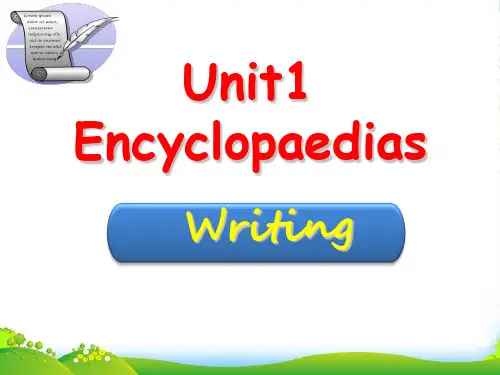
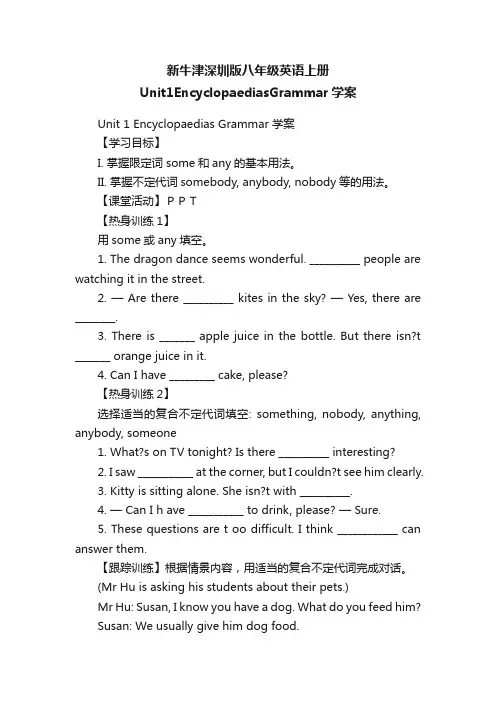
新牛津深圳版八年级英语上册Unit1EncyclopaediasGrammar学案Unit 1 Encyclopaedias Grammar 学案【学习目标】I. 掌握限定词some和any的基本用法。
II. 掌握不定代词somebody, anybody, nobody等的用法。
【课堂活动】PPT【热身训练1】用some或any填空。
1. The dragon dance seems wonderful. __________ people are watching it in the street.2. — Are there __________ kites in the sky? — Yes, there are ________.3. There is _______ apple juice in the bottle. But there isn?t _______ orange juice in it.4. Can I have _________ cake, please?【热身训练2】选择适当的复合不定代词填空: something, nobody, anything, anybody, someone1. What?s on TV tonight? Is there __________ interesting?2. I saw ___________ at the corner, but I couldn?t see him clearly.3. Kitty is sitting alone. She isn?t with __________.4. — Can I h ave ___________ to drink, please? — Sure.5. These questions are t oo difficult. I think ____________ can answer them.【跟踪训练】根据情景内容,用适当的复合不定代词完成对话。
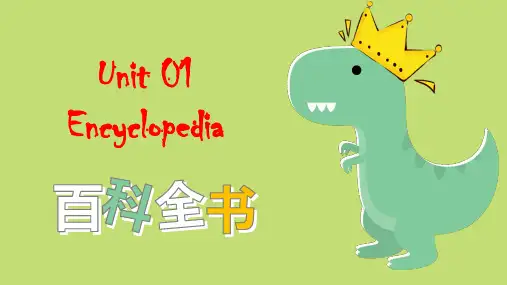
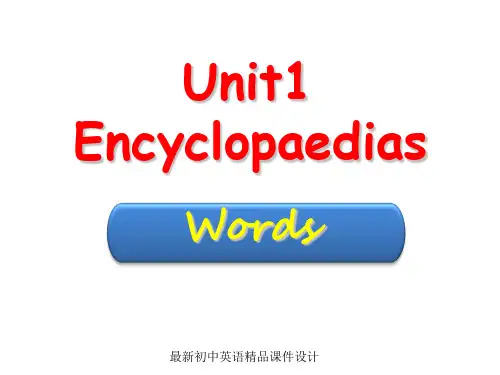
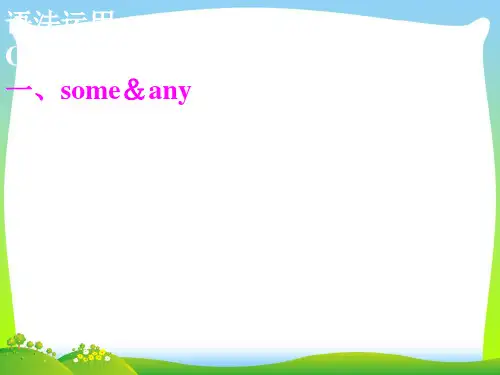
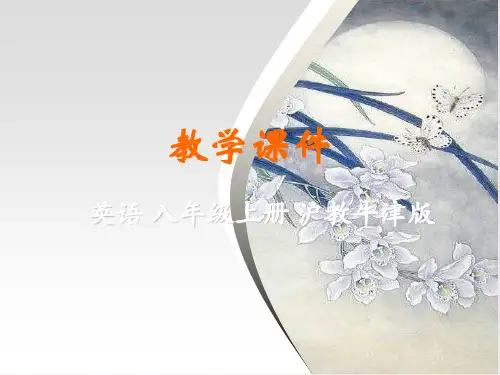
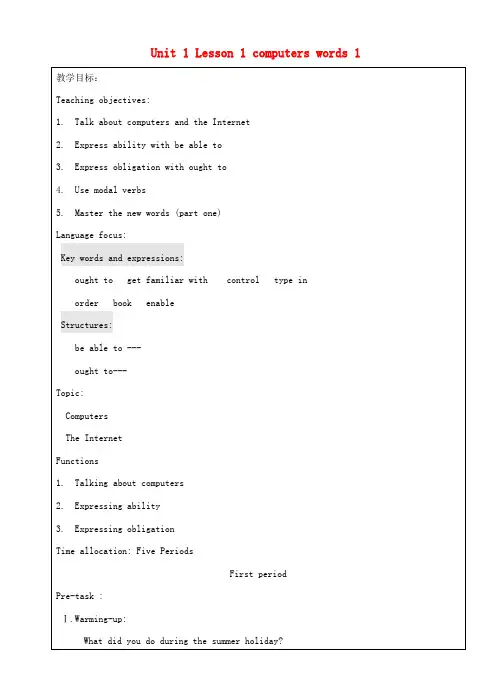
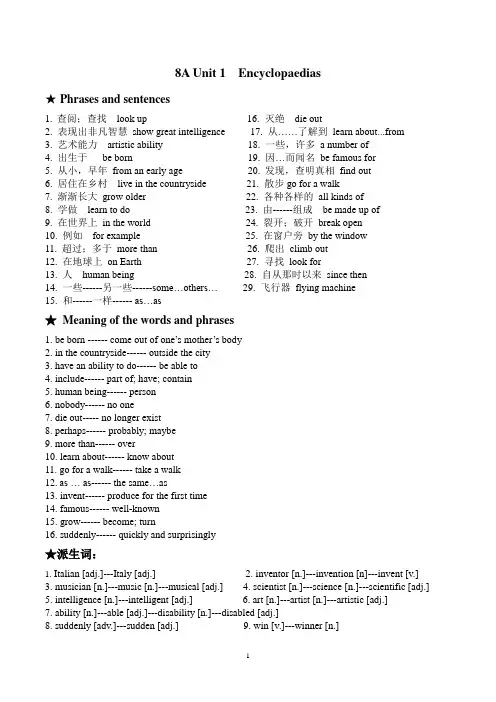
8A Unit 1 Encyclopaedias★Phrases and sentences1.查阅;查找look up 16. 灭绝die out2. 表现出非凡智慧show great intelligence 17. 从……了解到learn about...from3. 艺术能力artistic ability 18. 一些,许多a number of4. 出生于be born 19. 因…而闻名be famous for5. 从小,早年from an early age 20.发现,查明真相find out6. 居住在乡村live in the countryside 21. 散步go for a walk7. 渐渐长大grow older 22. 各种各样的all kinds of8. 学做learn to do 23. 由------组成be made up of9. 在世界上in the world 24. 裂开;破开break open10. 例如for example 25. 在窗户旁by the window11. 超过;多于more than 26. 爬出climb out12. 在地球上on Earth 27. 寻找look for13. 人human being 28. 自从那时以来since then14. 一些------另一些------some…others…29. 飞行器flying machine15. 和------一样------ as…as★Meaning of the words and phrases1. be born ------ come out of one’s mother’s body2. in the countryside------ outside the city3. have an ability to do------ be able to4. include------ part of; have; contain5. human being------ person6. nobody------ no one7. die out----- no longer exist8. perhaps------ probably; maybe9. more than------ over10. learn about------ know about11. go for a walk------ take a walk12.as … as------ the same…as13. invent------ produce for the first time14. famous------ well-known15. grow------ become; turn16. suddenly------ quickly and surprisingly★派生词:1. Italian [adj.]---Italy [adj.]2. inventor [n.]---invention [n]---invent [v.]3. musician [n.]---music [n.]---musical [adj.]4. scientist [n.]---science [n.]---scientific [adj.]5. intelligence [n.]---intelligent [adj.]6. art [n.]---artist [n.]---artistic [adj.]7. ability [n.]---able [adj.]---disability [n.]---disabled [adj.]8. suddenly [adv.]---sudden [adj.] 9. win [v.]---winner [n.]。
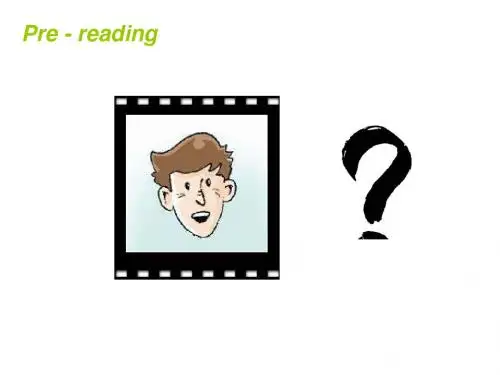
第 1 页 2019年广州新牛津英语八年级上Unit 1 Encyclopaedias Unit 1 Encyclopaedias
必记单词 human adj. 人的 dinosaur n. 恐龙 inventor n.发明家 born v.出生 ability n. 才能;能力 include v. 包括;包含 even adv. 甚至 however adv. 然而 nobody pron. 没有人 win v. 获胜,赢 2、常考短语 be born for example more than die out just like be famous for how long find out would like next to go for a walk
3、经典句型 1). Some dinosaurs were as small as chickens. 2). Nobody knows why. 3). Would you like some tea? 第 2 页
必记短语 listen to 听 hear learn about 了解到 learn talk about 谈论 in the countryside 在乡村,在农村 be born 出生 human being 人 die out 灭绝,消失 at the end of 在...的尽头,在...末尾 used to 过去常常 know about 知道关于...的情况 one day 有一天 be famous for 因.....而出名 so much 如此多 find out了解到,弄清 find by the window 在窗户旁边 next to 挨着 Sb.be interested in 对....感兴趣 be sure 确信 in the mountains 在山上 第 3 页
do with 处理 in the newspaper 在报纸上 all kinds of 各种各样的 a number of许多,大量 since then 自从那时 be made up of由....组成,构成 connect....to 把....和.....连接起来 for example =such as 例如 more than =over 多余超过 just like=be like 正如正像 How long 多久 would like to =want to 想要 go for a walk =take a walk 散步 from an early age 早期从很小时 look up 向上看 查阅 4、重点语法: some和any;复合不定代词 二课文详解: Getting reading 1. Is my encyclopaedia useful, Lo? Lo, 我的百科全书有用吗? 第 4 页
useful adj. “有用的,有益的,有帮助的”。useful是由名词use加后缀-ful构成的形容词,常在句中充当表语或定语。
This dictionary is very useful to us. 这本词典对我们很有用。 This is a useful book for English beginners. 这是一本对英语初学者有帮助的书。 拓展: (1)useful前使用不定冠词a, 因为它的发音是以辅音音素开头。 (2)以-ful结尾的形容词的反义词多是相应的以- less结尾的形容词。 useful (有用的) – useless(无用的) careful(细心的)– careless(粗心的) helpful (有帮助的– helpless(徒劳的) Reading 1. Look up 意为“查阅;查询”,强调的词典、参考书等工具书里查询。
We can look up new words in dictionary. 我们可以在词典中查新单词。 拓展: ① look up 仰视;向上看 He looked up from his book as I came into the room. 我进入房间时,他从书本上抬起头来看了看。
2. look的相关短语: look around 向周围看 第 5 页
look out 向外看;当心 look like 看起来像 look the same 看起来相同 look forward to doing 盼望 2. be born意为“出生”,其后可接地点或时间状语。 接地点名词时用介词in, 接时间名词时用介词on或in (具体到某一天用on;出生于某年/某月用in)。 Where were you born? 3.
①famous adj. 著名的,
相当于well-known,可以做表语和定语。 She is famous sports star in the world. 2. 辨析:
be famous for 与be famous as be famous for 因……而闻名 Hangzhou is famous for the West Lake. be famous as 作为……而著名 He is famous as a singer. 4. For example, his notebooks include some interesting drawings of flying machines.
1 include及物动词,包含,包括 The children include twenty girls. 拓展 第 6 页
including prep. 包括,包含在内 Ten members were present at the meeting, including myself. 2 drawing 可数名词,图画;素描图
辨析: drawing, picture 与painting drawing 指素描、工程图、线条图、铅笔画、钢笔画等 picture 指图片、图画、照片等。指照片时,与photo意义相同 painting 指着色的水彩画、油画等 5.Dinosaurs lived on Earth more than 60 million years before human beings. 1 more than “超过;多于”, 相当于over, 反义词less than,意为“少于”。
They have more than a car. 他们有不止一辆汽车。 拓展: no more than ( = only) 仅仅;不过 not more than 不多于;不超过 2 million “百万”,与具体的数字连用是,不加-s,后面直接接复数名词。 固定短语 millions of 。。。 “数百万的……”,其后接可数名词的复数形式,不与具体数字连用。 hundred, thousand和million的用法相同。 Millions of people help them in different ways. There are about two thousand students in this school.
助记: 第 7 页
hundred, thousand和million,有时含糊有时清。清时无-s和of,糊时-s和of跟 题: Football is so exciting that of people in the world play it. A. millions of B. million of C. two millions of
6. everywhere adv. 到处(=here and there)
辨析: everywhere, nowhere, anywhere 与somewhere everywhere 到处用于肯定句 nowhere 没有一处表示否定的含义 anywhere 任何地方多用于否定句和疑问句 somewhere 某个地方用于肯定句 7. as... as... “与……一样……”,当两个比较对象在某方面相同时,用“as+形容词/副词原级+ as”结构,表示“(A与B)一样……” This tree is as tall as that one. 拓展:比较两个对象时,一方不及另一方,用“not/so+形容词/副词原级+ as”结构,表“A不
如B……“ Our school is not so big as yours. --- English isn’t as as Chinese. --- Maybe, perhaps it’s just because Chinese is your native language. A. easy B. easily C. easier D. easiest 8. comes out of his/her mother/s body
out of 从……出来,在……外 The workers are coming out of the meeting room. look out of 从……向外看 rush out of 从……冲出来